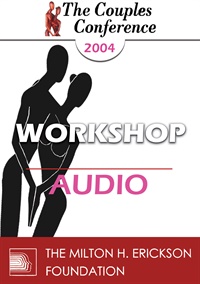
- Average Rating:
- Not yet rated
- Topic Areas:
- Workshops | Love | Avoidant | Addiction
- Categories:
- Couples Conference | Couples Conference 2004 | Pioneers in Couples and Family Therapy
- Faculty:
- Terry Real, LICSW
- Duration:
- 1:48:39
- Format:
- Audio Only
- Original Program Date:
- Mar 27, 2004
- Short Description:
- This workshop examines the dynamics of love addiction and avoidance, linking them to early experiences of abandonment and enmeshment. It challenges cultural norms around gender, highlighting the common pairing of love-dependent women and love-avoidant men shaped by patriarchy. The speaker emphasizes healthy self-esteem, emotional boundaries, and the need for mature relational development. Practical tools like feelings journals support the shift toward vulnerability, intimacy, and emotionally grounded masculinity.
- Price:
- $15.00 - Base Price
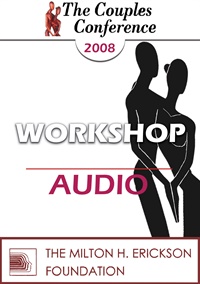
- Average Rating:
- Not yet rated
- Topic Areas:
- Workshops | Addiction | Attachment | Couples Therapy | Personality Disorders | Avoidant | Psychobiological Approach to Couples Therapy (PACT)
- Categories:
- Couples Conference | Couples Conference 2008 | Pioneers in Couples and Family Therapy
- Faculty:
- Stan Tatkin, PsyD, MFT
- Duration:
- 2:24:28
- Format:
- Audio Only
- Original Program Date:
- Apr 27, 2008
- Short Description:
- Avoidant attachment can resemble disorders of the self, such as narcissistic or schizoid presentations, where partners rely heavily on auto-regulation and disengage from mutual emotional attunement. This workshop examines how such dynamics play out in romantic relationships, offering practical strategies—like proximity-based interventions and structured dyadic exercises—to support co-regulation and foster secure relating.
- Price:
- $15.00 - Base Price
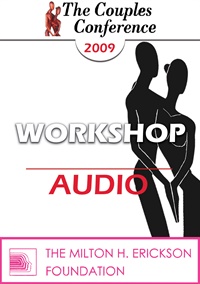
- Average Rating:
- Not yet rated
- Topic Areas:
- Workshops | Couples Therapy | Intimacy | Avoidant
- Categories:
- Couples Conference | Couples Conference 2009 | Pioneers in Couples and Family Therapy
- Faculty:
- Ellyn Bader, PhD
- Duration:
- 1:23:01
- Format:
- Audio Only
- Original Program Date:
- May 02, 2009
- Short Description:
- A comprehensive workshop exploring intimacy avoidance in couples, revealing therapeutic strategies to help partners overcome fear of vulnerability, challenge core beliefs, and develop deeper emotional connections through authentic communication and courageous self-exposure.
- Price:
- $15.00 - Base Price

- Average Rating:
- Not yet rated
- Topic Areas:
- Emotionally Focused Therapy (EFT) | Workshops | Attunement | Couples Therapy | Avoidant
- Categories:
- Couples Conference | Couples Conference 2018
- Faculty:
- Sam Jinich, PhD
- Duration:
- 1:07:55
- Format:
- Audio Only
- Original Program Date:
- May 05, 2018
- Short Description:
- When One or Both Partners are Highly Cognitive or Emotionally Avoidant. Accessing and deepening vulnerable emotions that are at first hidden, unspoken, unknown or masked by reactive and protective emotions is one of the most powerful skills of an emotionally focused couples therapist. Emotionally focused therapists facilitate emotionally moving enactments by guiding avoidant partners to turn to their partner and to share with them about their pain, sadness and fears.
- Price:
- $15.00 - Base Price
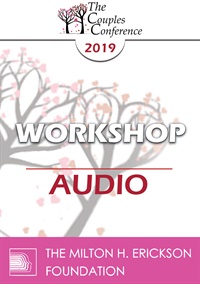
Credit available - Click Here for more information
- Average Rating:
- Not yet rated
- Topic Areas:
- Workshops | Couples Therapy | Gottman Method | Conflict | Relationships | Avoidant
- Bundle(s):
- CC19 Main Conference Audio Bundle | CC19 Individual Selections
- Categories:
- Couples Conference | Couples Conference 2019 | Online Continuing Education
- Faculty:
- Carrie Cole, M.Ed, LPC | Donald Cole, DMIN, LPC, LMFT
- Duration:
- 1:19:09
- Format:
- Audio Only
- Original Program Date:
- Apr 12, 2019
- Short Description:
- Particular attention will be given to working with couples displaying two patterns of dysfunction: escalation and avoidance.
- Price:
- $15.00 - Base Price
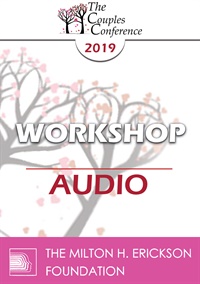
Credit available - Click Here for more information
- Average Rating:
- Not yet rated
- Topic Areas:
- Workshops | Couples Therapy | Gottman Method | Conflict | Avoidant
- Bundle(s):
- CC19 Main Conference Audio Bundle | CC19 Individual Selections
- Categories:
- Couples Conference | Couples Conference 2019 | Online Continuing Education
- Faculty:
- Carrie Cole, M.Ed, LPC | Donald Cole, DMIN, LPC, LMFT
- Duration:
- 1:19:55
- Format:
- Audio Only
- Original Program Date:
- Apr 12, 2019
- Short Description:
- Particular attention will be given to working with couples displaying two patterns of dysfunction: escalation and avoidance.
- Price:
- $15.00 - Base Price

